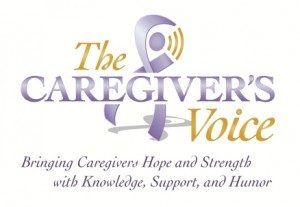You might be silently depressed and not even notice it.
People often confuse depression with sadness, crying, or not just being in the mood. That’s wrong. Depression is the constant feeling of being numb to emotions, to life. You wake up in the morning to go back to bed again.
Silent depression or sometimes called “smiling depression” isn’t a clinical diagnosis, but for many people, it’s a real problem. Typically, silent depression occurs when individuals who are experiencing depression mask their symptoms. They hide behind a smile to convince other people and even themselves that they are happy.
Here are 10 signs you might be silently depressed.
1. The major changes are in sleep habits
A lack of sleep can contribute to depression, and depression can make it more difficult to sleep.
Sleeping too much can also be a sign that you may have depression.
Oversleeping can be a nice form of escape.
“You may be thinking, I don’t have anything to look forward to so why do I even start the day?” Or even better, “ I wanna escape deal with my day-to-day problems now.”
I call it: Acting that I do not exist because when I don’t exist, my problems don’t exist too.
2. No energy for anything
Depression zaps a person’s energy levels to the point where even getting out of bed seems like running a marathon. Why?
The constant, intrusive thoughts of hopelessness and despair combined with high stress, poor appetite, and sleep troubles make life a daily battle. A person silently suffering from depression might even start withdrawing from friendships and family life because they have no energy left for them.

Photo by Kinga Cichewicz on Unsplash
3. Overeating or losing appetite at all
Increased or decreased appetite is a common symptom of depression.
You may crave comforting prepared foods to get a feel-good buzz, boosting your mood and energy in the short term. There are usually high sugar snacks that are an easy and quick option. Depressed people find it hard to prepare and cook meals from scratch.
It can also lead to a loss of appetite. Changes in your eating habits may be related to other symptoms of depression, such as a lack of pleasure from activities. This can include a loss of interest in eating and you might go for days without eating or drinking enough.

Photocredit : Shutterstock.com
4. Faking emotions
My biggest fear is that eventually, you see me the way I see myself.” — Anonymous
You might don’t want to admit your depression to yourself or others. Either way, silently depressed people act overly happy in others’ company but only engage in shallow conversation or small talk.
They easily switch between being joyful, lively, and excited to sadness, anger, or frustration. Going from one extreme to the other can be a good indication.
5. Withdrawal from activities or work
Do you feel the urge to pull away from others and to shut down? This is one of the key signs of depression; occurs because the disorder takes up all of the person’s time and energy. If you’re silently depressed you might start dropping one or two activities from your schedule.
Eventually, you might not be able to get out of bed.
6. Becoming a workaholic
On the other hand, some people use work to cover up their emotions. They use work as an excuse to escape how they feel, a distraction from the suffering that their mind causes them. Workaholics are far more likely to be dealing with specific psychiatric disorders.
The study published in Plos One relied on data from 16,426 working adults and found workaholics had significantly higher rates of ADHD, OCD, anxiety, and depression.
7. No sexual desire
Do you feel like losing interest in activities you once enjoyed, including sex?
Sexual desire is cultivated in the brain, and sex organs rely on chemicals in the brain (called neurotransmitters) to promote libido as well as the changes in blood flow needed for the sexual act. When depression disrupts these brain chemicals, it can make sexual activity more difficult or dull pleasurable feelings.
8. Self-medicating with alcohol or drugs
Eating, drinking, overthinking
Turning to alcohol or drugs substance to escape your pain is a pattern that can accompany depression. Women are more than twice as likely to start drinking heavily if they have depression.
It can for sure relieve your suffering for a little while but it usually causes your depression to get even worse. People who are depressed and drink too much have more frequent and severe episodes of depression and are more likely to think eventually about suicide.

Photo by Adam Jaime on Unsplash
9. Guilty thoughts
You might think that you have a good life and you shouldn’t feel bad and be depressed.
Silently depressed people also feel like they must be doing something wrong and that blame themselves for being depressed. Sometimes they’re ashamed of their depression. So they keep it hidden behind a smile.
Social media doesn’t help in this case. Many people scroll through social media and see pictures of happy people. Consequently, they grow to believe that they’re the only ones struggling with mental health issues.
But the fun fact is that they are usually the ones who are depressed.
If you think you may be depressed, obviously talk to your doctor. Treatment may include medication, talk therapy, and lifestyle changes such as diet and exercise.
—
This post was previously published on medium.com.
***
You may also like these posts on The Good Men Project:
 White Fragility: Talking to White People About Racism
White Fragility: Talking to White People About Racism  Escape the “Act Like a Man” Box
Escape the “Act Like a Man” Box  The Lack of Gentle Platonic Touch in Men’s Lives is a Killer
The Lack of Gentle Platonic Touch in Men’s Lives is a Killer  What We Talk About When We Talk About Men
What We Talk About When We Talk About Men —
Photo credit: Shutterstock.com
The post Are You Silently Depressed? appeared first on The Good Men Project.
Original Article










